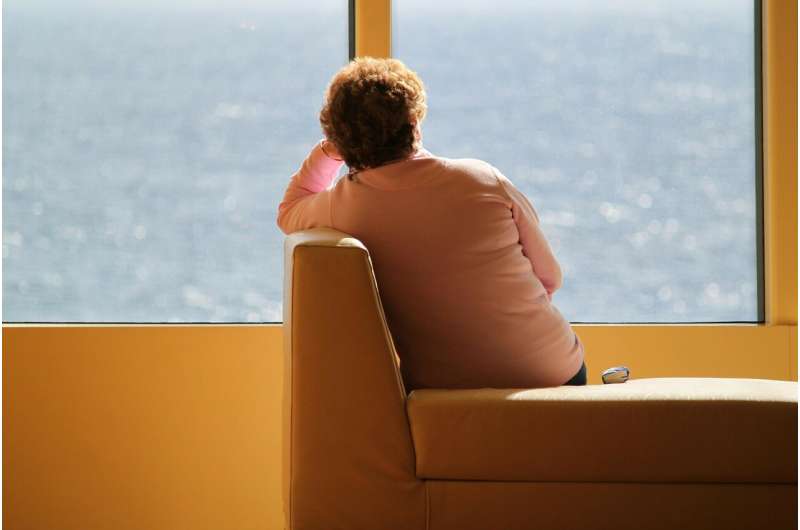
Women are 40% more likely to experience depression in perimenopause than those who aren’t experiencing any menopausal symptoms, finds a new study led by UCL researchers.
The research, published in the Journal of Affective Disorders, provides a meta-analysis of seven studies involving 9,141 women from across the world (including Australia, U.S., China, Netherlands and Switzerland), to understand whether different stages of the menopause were associated with different risk of depression.
Perimenopause usually occurs around three to five years before the onset of menopause. During this stage, women’s estrogen and progesterone levels begin to fluctuate, causing them to experience mood changes, irregular menstrual cycles and other menopausal symptoms, including increased feelings of depression.
This stage of menopause continues until one year after a woman’s last period and can often last between four and eight years in total.
The researchers found that perimenopausal women had a significantly higher risk (around 40%) of experiencing depressive symptoms and being diagnosed with depression compared to premenopausal women. There was no significant increase in depression risk for post-menopausal women compared to those who were premenopausal.
Symptoms were measured using standardized, internationally recognized self-report instruments, including the Patient Health Questionnaire PHQ-9 (which considers factors such as a lack of interest in doing things, issues with sleep, and feelings of low mood).
Senior author Dr. Roopal Desai (UCL Psychology & Language Sciences) said, “This study shows that women in the perimenopausal stage are significantly more likely to experience depression than either before or after this stage. Our findings emphasize the importance of acknowledging that women in this life stage are more vulnerable to experiencing depression. It also underlines the need to provide support and screening for women to help address their mental health needs effectively.”
The new study comes shortly after the researchers’ previous publication, which found that therapy—such as mindfulness and cognitive behavioral therapy—could be an effective form of treatment for non-physical symptoms of menopause.
Corresponding author, Professor Aimee Spector (UCL Psychology & Language Sciences), said, “Women spend years of their lives dealing with menopausal symptoms that can have a huge impact on their well-being and quality of life. Our findings show just how significantly the mental health of perimenopausal women can suffer during this time. We need greater awareness and support to ensure they receive appropriate help and care both medically, in the workplace and at home.”
Lead author and UCL Masters student Yasmeen Badawy (UCL Psychology & Language Sciences) said, “Combining data from global studies indicates that these findings cannot be attributed to cultural factors or lifestyle changes alone which have been sometimes used to explain the depressive symptoms that women experience during perimenopause.”
Study limitations
As each study was adjusted for covariates that could affect results, the researchers were unable to account for whether the women involved had a previous history of depression, which was found to be of relevance in previous studies. The researchers were also unable to perform a comparison of symptoms between perimenopausal and post-menopausal women.
More information:
Yasmeen Badawy et al, The risk of depression in the menopausal stages: A systematic review and meta-analysis, Journal of Affective Disorders (2024). DOI: 10.1016/j.jad.2024.04.041. linkinghub.elsevier.com/retrie … ii/S0165032724006438
Citation:
Women are 40% more likely to experience depression during perimenopause, finds study (2024, April 30)
retrieved 30 April 2024
from https://medicalxpress.com/news/2024-04-women-depression-perimenopause.html
This document is subject to copyright. Apart from any fair dealing for the purpose of private study or research, no
part may be reproduced without the written permission. The content is provided for information purposes only.


